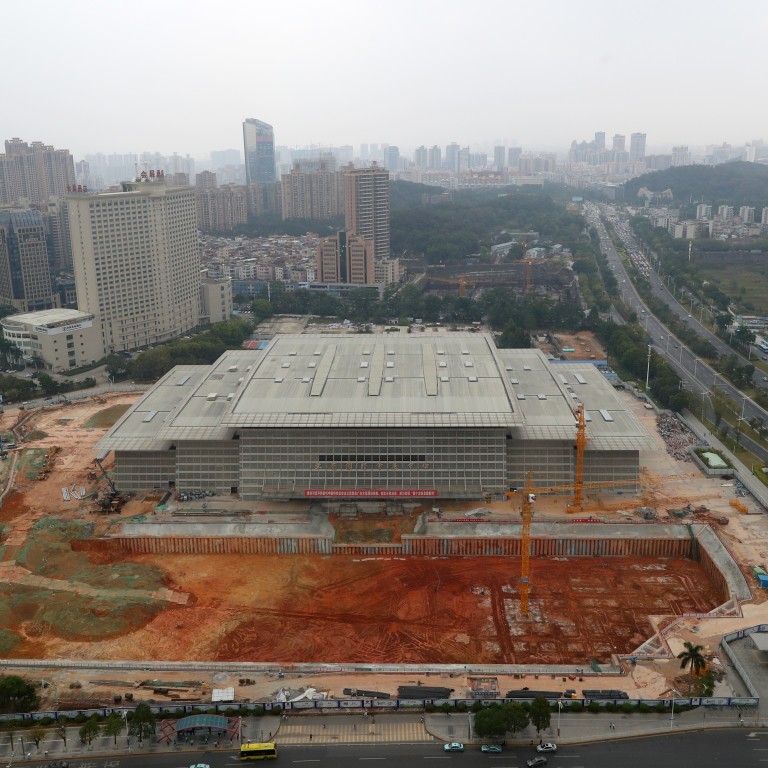
Taiwanese architect helping turn Dongguan from seedy sex hub to tech hub
- Casey Wang, founder of architecture firm Blend, received government funding for her project
- Dongguan is leaving its reputation as a factory town and hotbed for prostitution behind, building tech campuses
The job of transforming China’s former “sex capital” isn’t as glamorous as some of Taiwanese architect Casey Wang Nai-huei’s previous projects. But here she is in Dongguan, the sprawling southern Chinese city also known as “the sweatshop of the world”, where factories have long churned out cheap products for foreign brands.
After burnishing her professional credentials at two multinational “starchitect” firms Wang, 38, set up her own boutique practice in Hong Kong called Blend three years ago. She had cut her teeth on Foster + Partners’ Yale School of Management building, with its abundance of glass curtain walls. Then there was Tencent’s stadium-sized Beijing headquarters, and the whimsical Taipei Performing Arts Centre, both by OMA.
Loyalty, cheap labour made Hong Kong’s toy king a mainland factory pioneer
Although her cosmopolitan team could have sought projects anywhere in the world, Dongguan appeared on the radar with a government-backed start-up fund available only to Taiwanese entrepreneurs below the age of 45.
Wang, who has a master’s degree in urban design from Harvard University, and lectures part-time at Chinese University of Hong Kong’s school of architecture, sniffed an opportunity.
Dongguan, blighted by lax urban planning, was once at the vanguard of China’s 40-year-old reform drive, but its freewheeling ways went too far.
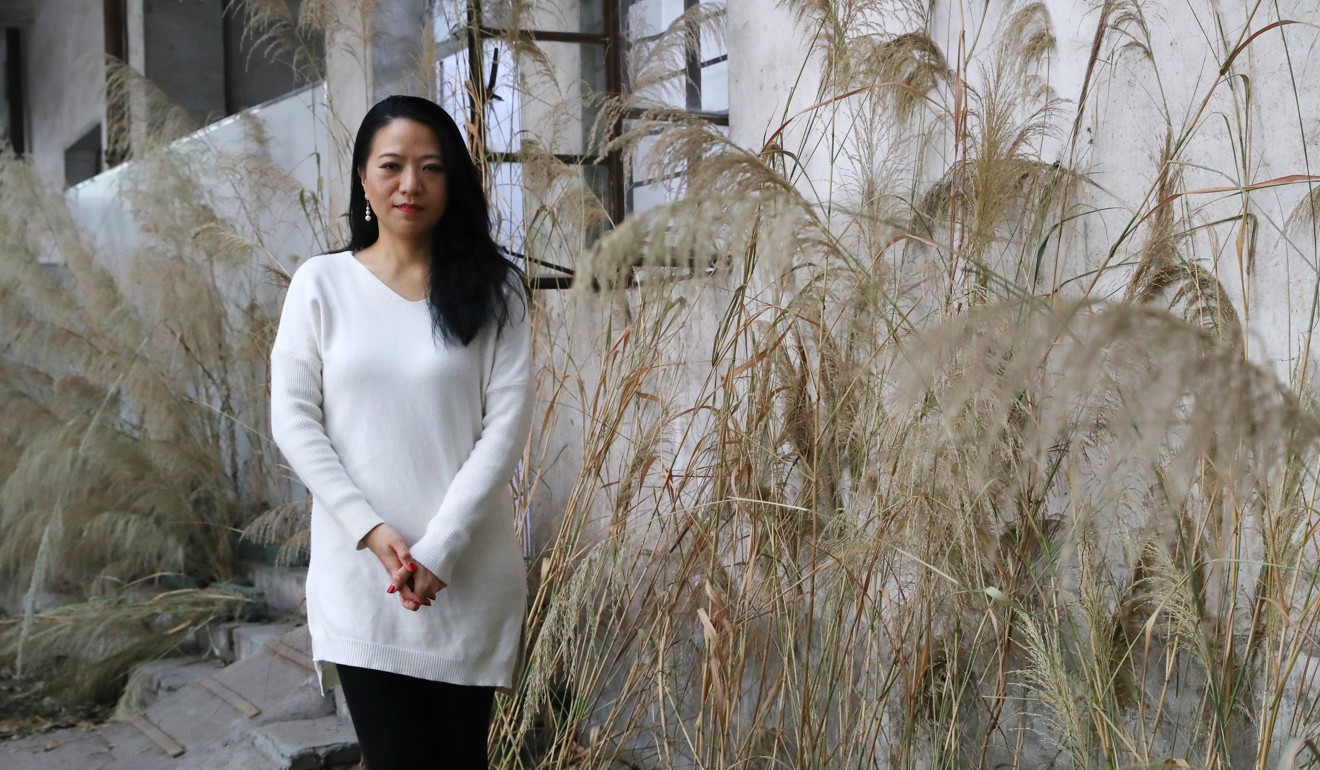
In 2014, the authorities launched a massive crackdown on the city’s runaway sex industry, including karaoke lounges, massage parlours, bars and saunas, which sprang up in the wake of the manufacturing boom.
The government also committed to build itself out of an economic rut caused by a plunge in manufacturing contracts, and replace old factories with shiny, new technology campuses.
The Dongguan-Taiwan Youth Innovation Service Centre (aka the DG Young Teams Centre) was set up to manage the 50 million yuan (US$7.4 million) allocated to Taiwanese entrepreneurs.
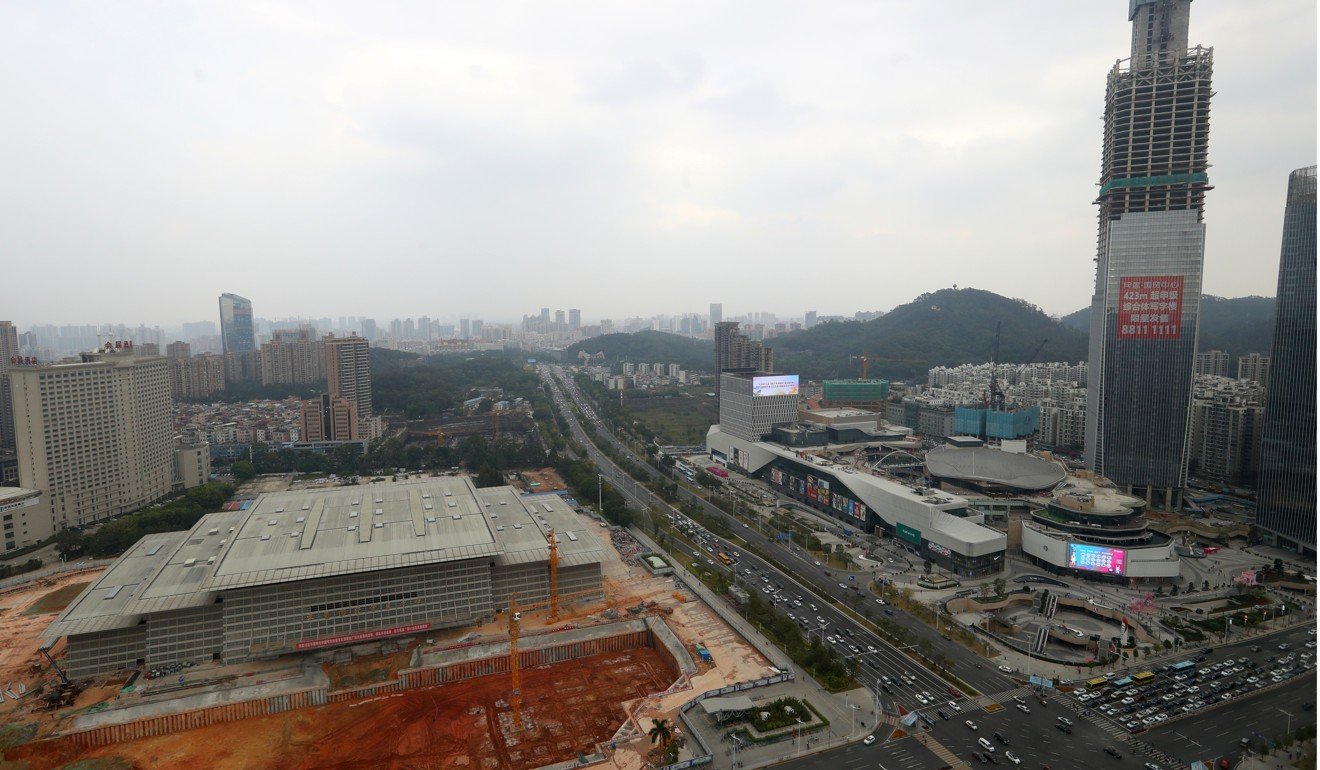
Wang applied for funding in 2016, soon after the centre was launched, and won the top award of 200,000 yuan plus additional support.
The centre was established in the Songshan Lake Science and Technology Industrial Park, founded in 2010 to attract hi-tech Taiwanese factories. Its tree-lined thoroughfares bear names such as Taoyuan Road and Kaohsiung Road, and are lined with food stalls selling Taiwanese beef noodles.
“Dongguan turns out to be a great place to find projects without the bureaucratic restrictions that limit the room for experimentation and creativity in other places,” Wang says.
“Also, the centre and the industrial estate’s Taiwan Affairs Department have been very helpful in introducing us to government and private sector opportunities.”
Huawei punishes two employees for using iPhone to send official company ‘Happy 2019’ tweet
Taiwan Affairs Departments are common under city governments or public bodies reporting to the Taiwan Affairs Office of the State Council, which is in charge of setting China’s policies towards Taiwan.
More than 100 other Taiwanese-owned start-ups have received payouts from the fund since Wang applied, while the centre also affords recipients temporary, free use of a 2,400 square metre co-working space and free accommodation in a serviced flat. It also helps with residency permits, customs clearance, schools and job searches for spouses.
Today, the Songshan Lake address has added appeal. Just a few minutes from the centre is the new 130-hectare Huawei campus – a pastiche of chocolate box European-style architecture where a miniature train shuttles staff from the tech giant between “Oxford” and “Luxembourg”.
Before Huawei and BBK Electronics helped turn Dongguan from seedy sex hub to tech hub, its factories were mostly owned by Hong Kong or Taiwanese.
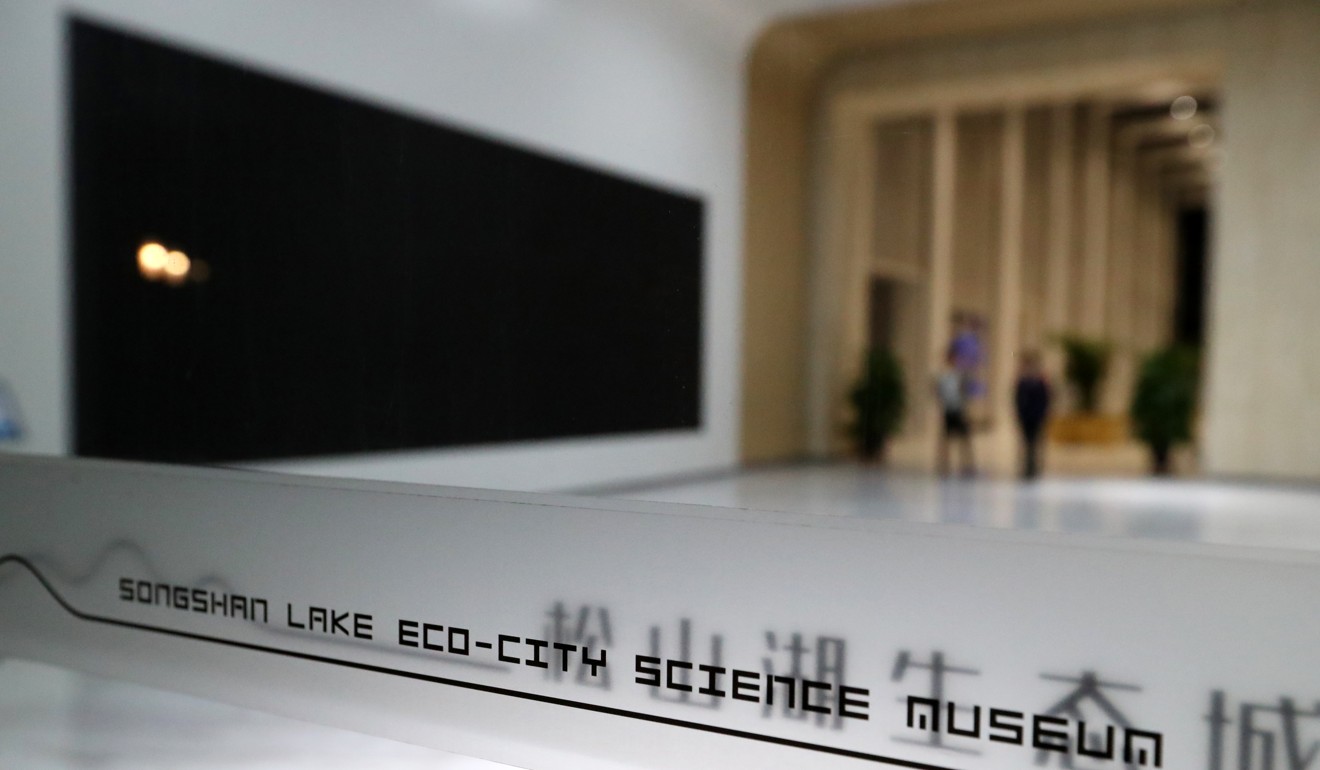
The city has China’s second-biggest population of Taiwanese – around 100,000 at its peak a few years ago – though many have left due to a slowdown in global consumer demand.
Hong Kong-based Blend’s team has continued to visit Dongguan at least once a week since its two-year subsidy programme expired, because most of its clients are there.
It is currently finalising the design of a new headquarters for Dogness, a Chinese company evolving from a low-cost, outsourced manufacturer of pet accessories (dog leashes for Ikea, for example) to a brand that creates is own hi-tech products.
Taiwan may not like that Taiwanese expertise is being exported to Dongguan, but the China market is too big to ignore
The company raised US$55 million on a Nasdaq listing in 2017, and that has allowed Wang’s team the freedom to be creative. The “Dogness campus” will have four towers connected with elevated walkways, separate zones for manufacturing, research and development, and even a luxury pet hotel. A terrace garden and a central courtyard allow ample space for testing the latest smart collars.
“As Dongguan manufacturers transform … and stress innovation and automation, they need the space to allow for seamless collaboration between the design team and the production team. The location of the [Dogness] headquarters is great, too. It is right in the middle of Dongguan’s new business district,” Wang says, as she gestures towards the city centre from the top floor of new, five-star Kande International Hotel.
Winning ideas for pedestrianising polluted Hong Kong business district artery Des Voeux Road Central
Looking down from the 38th floor, she over points out the adjacent Dongguan Convention and Exhibition Centre, which is being turned into a civic centre.
Blend has also been employed by the city government to plan the traffic flow around the area and build a footbridge connecting the civic centre with a new commercial complex opening on the other side of a motorway, where another Blend project sees the company designing a green roof for a shopping centre.
Other projects include design work for a new industrial estate called Inno Valley No 1 – home to a Dongguan Macau Youth Innovation Services centre that helps Macau start-ups.
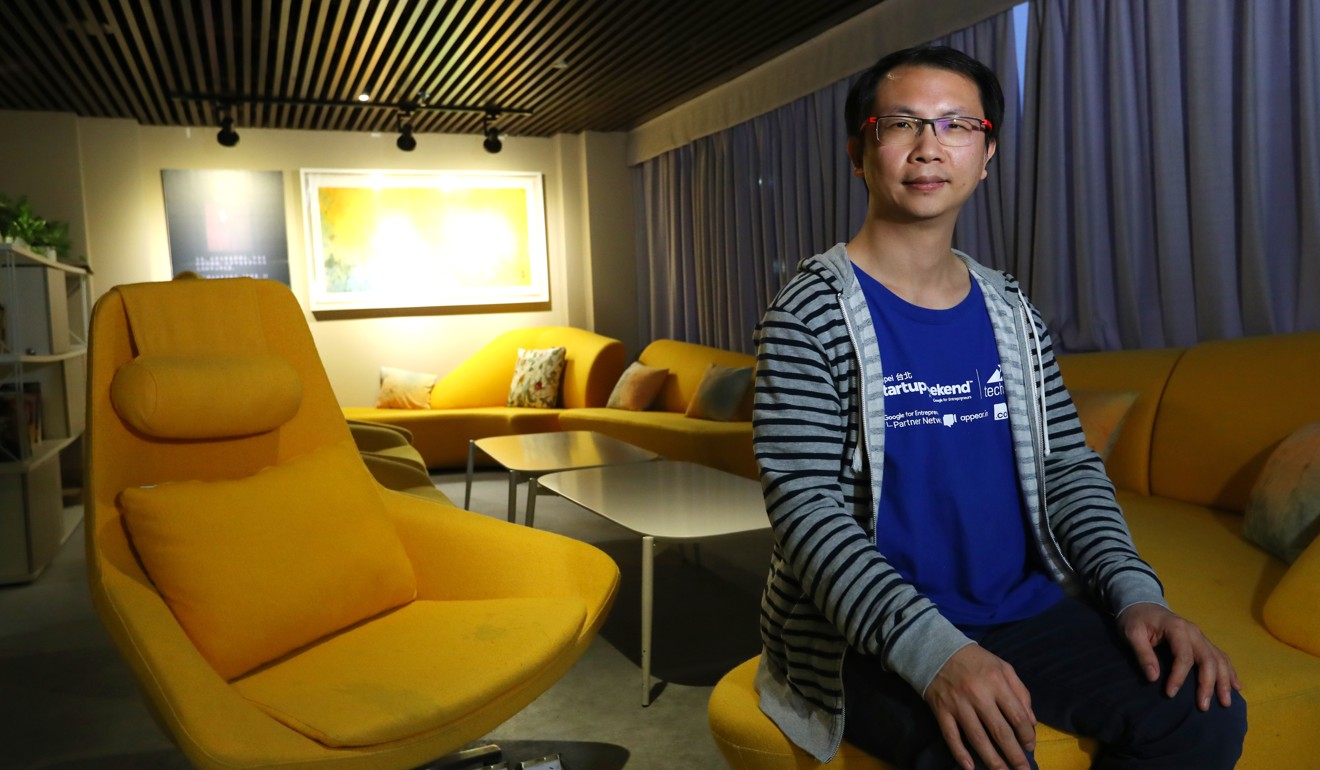
Back at the DG Young Teams Centre, chief financial officer Jabez Huang Jingde proudly shows off the generous co-working space. Current tenants include a 3D-printer maker of fantasy characters, an inventor of a “hula hoop chair” that allows users to swing their waist while seated, and two doctors who have come up with an environmentally friendly tonic that reduces the need for antibiotics at fish and prawn farms.
“We welcome all kinds of businesses and are not limited to hi-tech. As long as you have a good business plan, we will welcome you,” he says.
Some of the recipients are second-generation Dongguan residents. So many Taiwanese investors and managers arrived in Dongguan in the 1990s that the first school for Taiwanese children in China opened there in 2000, and it follows Taiwan’s syllabus.
“The children, called Taishang Baobaos [Taiwanese businessmen’s babies], may go back to Taiwan for college, but some have come back because this is where they grew up,” Huang says.
He and his wife arrived in Dongguan to work for Taiwan-owned businesses, but he quit and set up a company making environmentally friendly cleaning powder.
Despite the rhetoric surrounding the delicate relationship between Beijing and Taipei – and President Xi Jinping’s insistence on reunification – Dongguan’s Taiwanese residents prefer to keep out of politics.
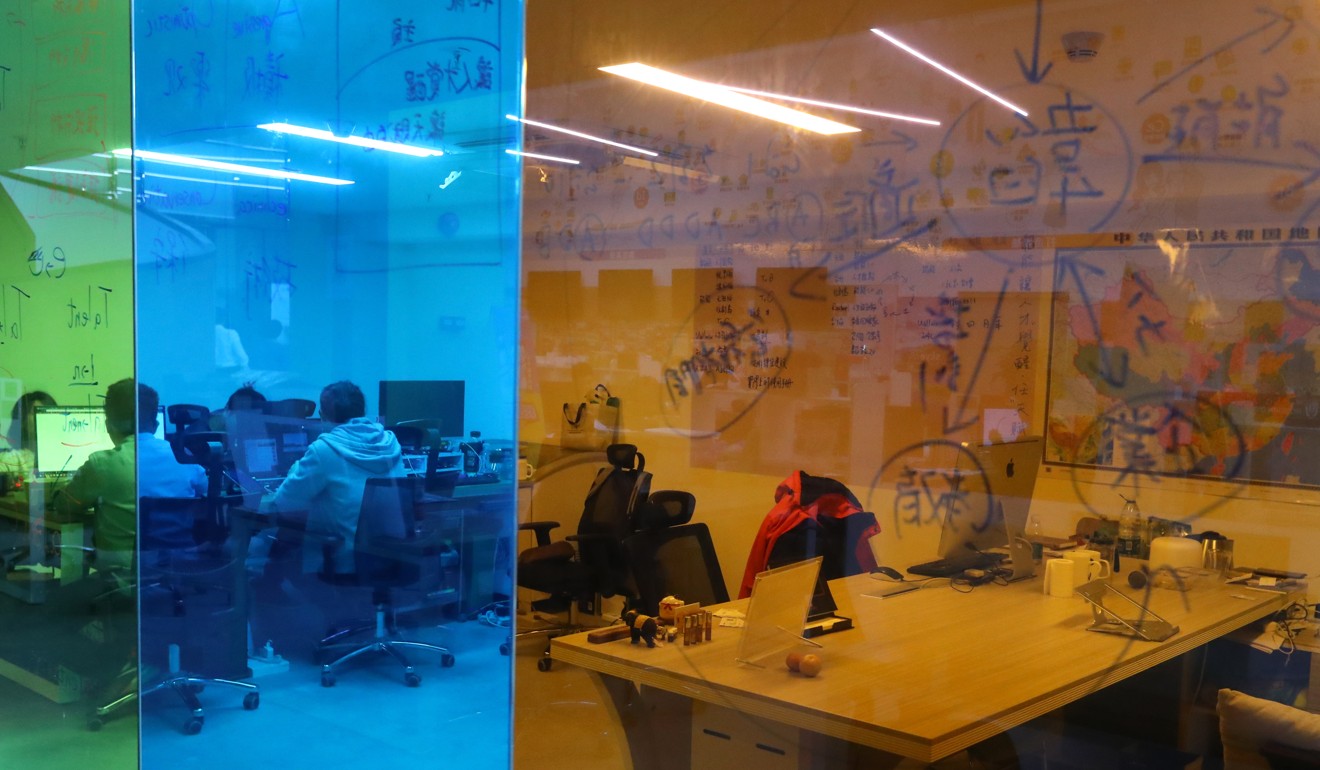
“We are encouraged to go back to Taiwan when there’s an election. Naturally, those doing business in China tend to welcome closer cross-strait ties,” Wang says.
Otherwise, it’s all business, she adds.
Her arrival in Dongguan in 2016 coincided with the inauguration of Taiwan’s President Tsai Ing-wen and subsequent deterioration in cross-strait relations. More Taiwanese expatriates in China flew back for the November 2018 local elections than in previous polls because of concerns Tsai’s administration would pull back economic integration with the mainland, Taiwan’s media reported. The ruling Democratic Progressive Party lost major seats in the elections.
“Taiwan may not like that Taiwanese expertise is being exported to Dongguan, but the China market is too big to ignore,” Huang says.
There are no political strings attached to the start-up funds, he adds.
However, not everyone plays the game. Lin Boxuan was a DG Young Teams start-up fund recipient who opened an e-gaming business in the city. Last year, in an interview with a Taiwanese publication about his experience, the young man made a comment about how China practises “brainwashing” and insisted he still described himself as Taiwanese.
He then became a target of Chinese internet trolls, who accused him of taking a pro-independence stance and for biting the hand that fed him.
He released an online video to apologise for making “ignorant comments”.
“I haven’t been asked in China about identity. I usually prefer not to have any political discussion,” Wang says. “Like most people who come to Dongguan, I am here to gain experience and invest in my career. That is all.”

